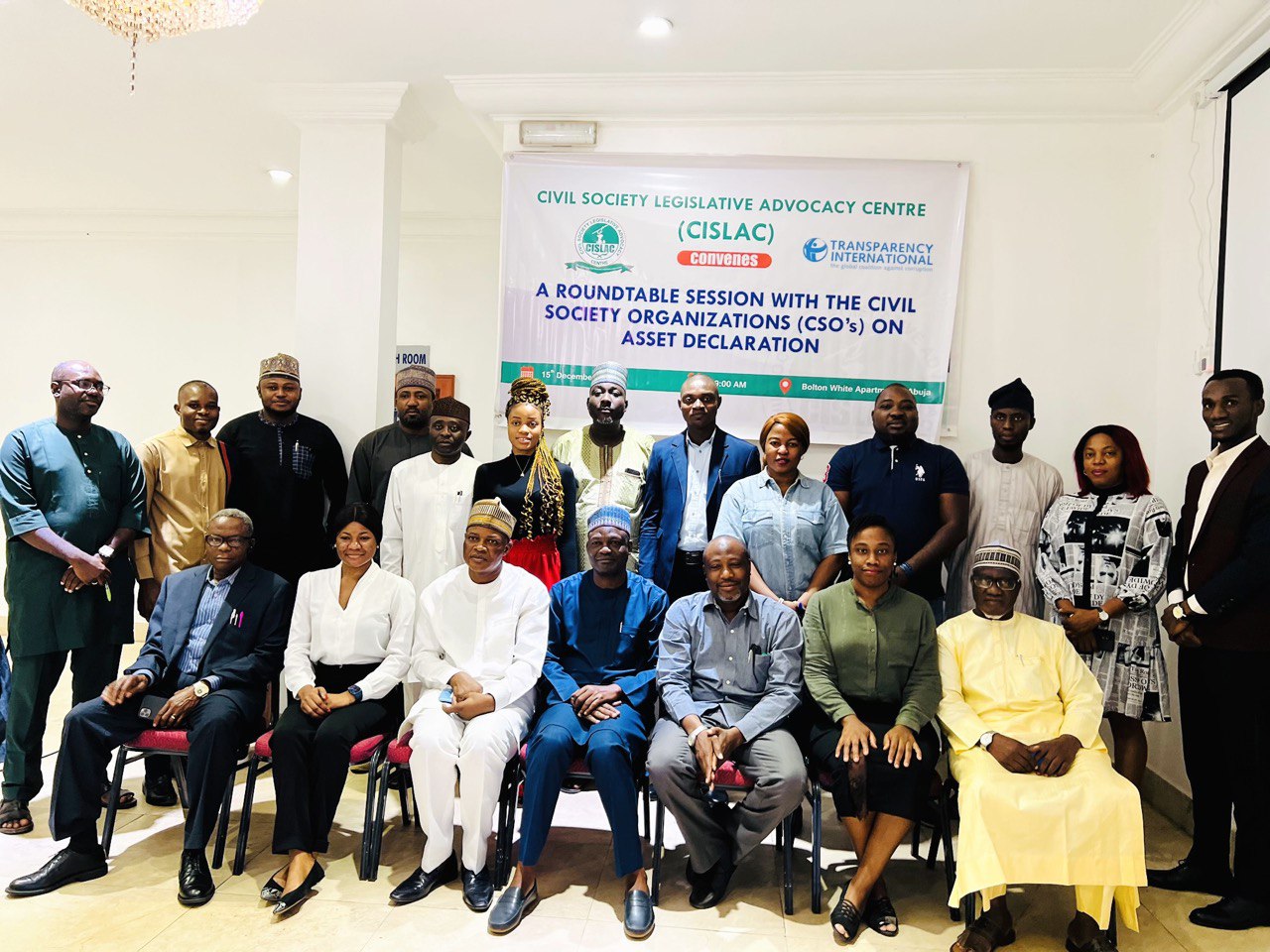Regarded as one of the vital ways of preventing corruption in the public service, the CSOs roundtable workshop organized by the Civil Society Legislative Advocacy Centre (CISLAC) was to strengthen relationship with the Code of Conduct Bureau (CCB) on how to strengthen asset declaration regime in Nigeria.

Participants noted that the Bureau has a critical role to play in the fight against corruption, especially serving as a moral and legal watchdog against public-sector embezzlement and undue enrichment.
As the foremost anti-corruption agency which derived its strength and operation from section 3, part of the Third Schedule to the 1999 Constitution of the Federal Republic of Nigeria as amended, and mandated to receive declarations by public officers under paragraph 12 of part 1 of the fifth schedule to the constitution, the Bureau generally scored low in carrying out its core function of preventing corruption among public officers.
Representatives of Civil Society Organizations (CSOs) pledged to support the Bureau with advocacy and technical expertise that would amplify the Bureau’s operations and its invaluable role in preventing public sector corruption.
This effort is timely as it came on the heels of the recent report of Nigeria’s Implementation of the 2014 and 2019 United Nations Convention Against Corruption Review Recommendations by the United Nations Office on Drugs and Crime (UNODC) Nigeria, which scored Nigeria lowest on its corruption prevention measures.
The Center looks to continue working with the Bureau and CSOs in the criminal justice sector towards ensuring that the nation’s asset declaration regime is enhanced. The Center’s Electoral Financing Project for instance rides on the moral obligation political candidates owe the people, to demand for their sources of campaign financing. Although politicians have continued to shy away from disclosing their sources of campaign funding, we believe that continuous advocacy will bring about the desired change for development.

